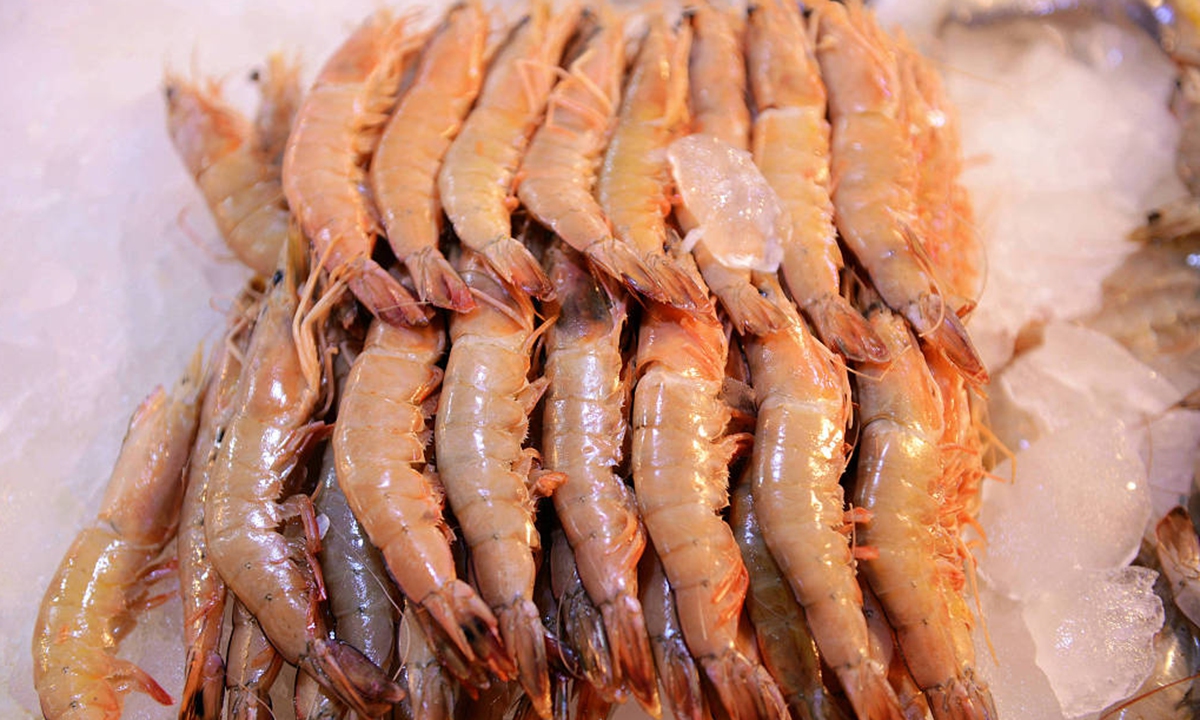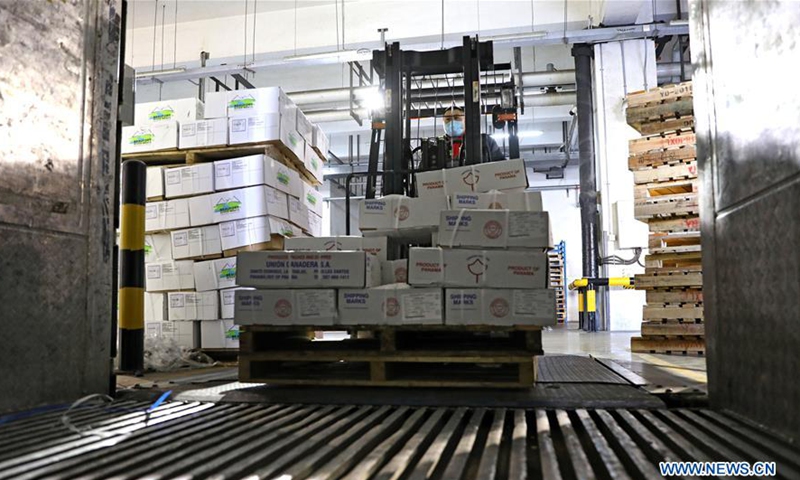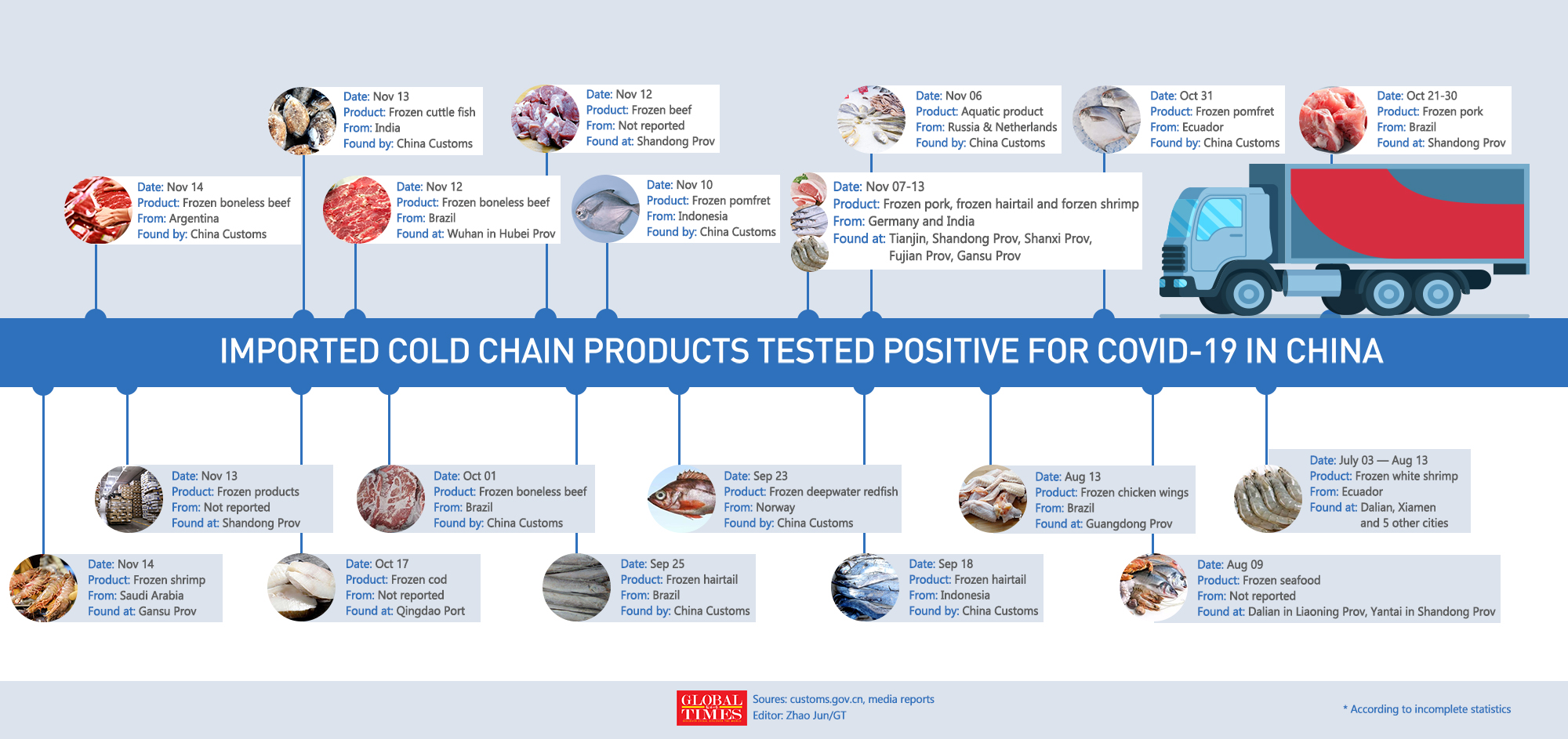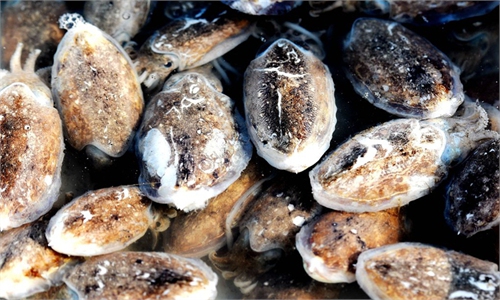
Frozen shrimp Photo:VCG
Lanzhou, the capital city of Northwest China's Gansu Province, has started tracking coronavirus contaminated frozen shrimp after samples of the packaging of the shrimp imported from Saudi Arabia tested positive for the virus, sparking concern about imported frozen foods disrupting China's well-established anti-epidemic measures as more than 10 provinces in the country have found the virus on imported frozen foods.
The batch of frozen shrimp imported from Saudi Arabia entered China through North China's Tianjin ports, and were transported to the Jiaojiawan frozen food plant located in Lanzhou on November 8, according to the health authority of Lanzhou on Saturday.
Of the 345 packages of shrimp received by the Lanzhou food plant, 82 have been sold to local markets, which have all been isolated. Lanzhou health authorities tracked and quarantined 32 people, including a driver in Sichuan Province's Chengdu city.
According to Lanzhou's health authorities, as of Saturday morning, coronavirus tests on 2,270 people and 680 food and environment samples all produced negative results. Lanzhou authorities said will roll out a citywide inspection on frozen food imported from overseas.

A worker unloads boxes of imported frozen meat at a cold storage at Dalian port in Dalian, northeast China's Liaoning Province, April 8, 2020. Since it resumed operation, the port has streamlined its cold chain operation attempting to achieve greater efficiency. Photo:Xinhua
Since June more than 10 provinces and cities including Beijing, Liaoning, Anhui, Fujian, Jiangxi, Shandong, Guangdong, Shaanxi, and Jiangsu, have discovered the coronavirus on imported frozen food or food packaging.
To prevent the imported food from infecting people, China's State Council on Monday required all imported cold-chain food to be thoroughly disinfected before going to the market. Related equipment and warehouses are also required to be fully sterilized, including loading and transporting carriers.
While China ramps up efforts to prevent risks caused by imported frozen food, some western media have casted doubts that the virus transmission can be caused by frozen food.
Chinese Center for Disease Control and Prevention (CDC) has said virus-contaminated packaging can lead to infection after living coronavirus was found on the outer packaging of imported frozen cod in Qingdao, East China's Shandong Province on October 17.

Infographic:GT
It was the first time it has been confirmed that the virus can be imported within the cold-chain food transportation process over long distances and across borders and cause infections among people.
Two loader operators in Qingdao were infected with the virus on September 24, and a driver and loader operator in Tianjin were also infected with the novel coronavirus respectively on November 9 and 8, reports said.
Chinese experts have brushed off the possibility that China is at risk of a large-scale spreading of the coronavirus, even from a possible outbreak caused by imported cold-chain goods.
"Unlike people-to-people transmission, cases are being linked to imported cold-chain goods which are easier to contain," Wang Guangfa, a respiratory expert at Peking University First Hospital, told the Global Times on Saturday. "Risks posed by imported food are confined to related professions, the general public need not overreact to sporadic infections."
Xue Lan, a professor and former dean at the School of Public Policy and Management at Tsinghua University in Beijing, told the Global Times that an equally effective mechanism for cold chain prevention and control, would be to emulate China's successful screening and quarantine of people arriving from COVID-19-hit countries and regions.


